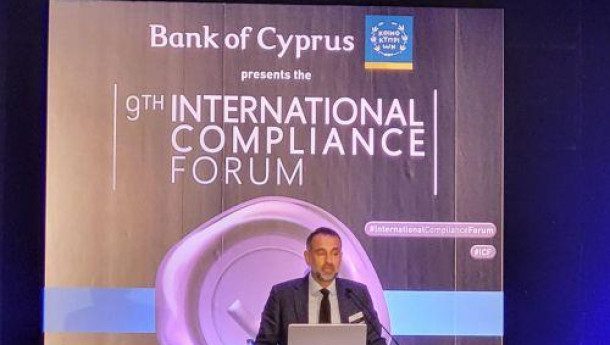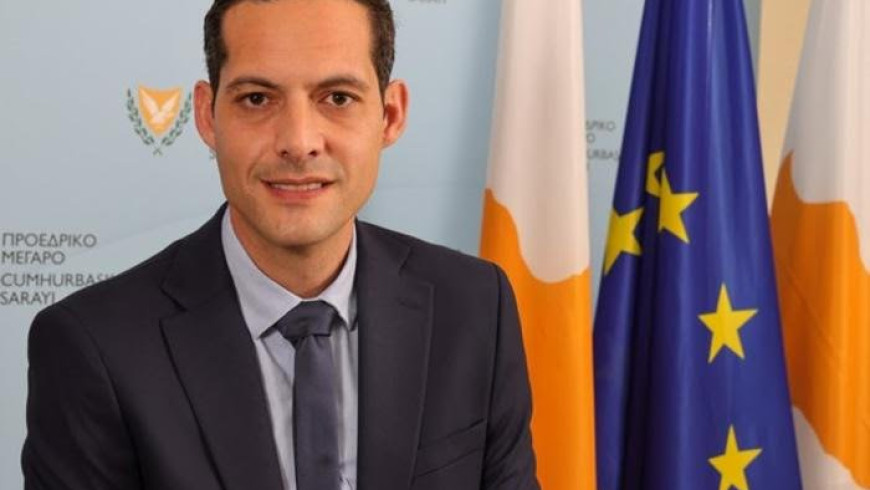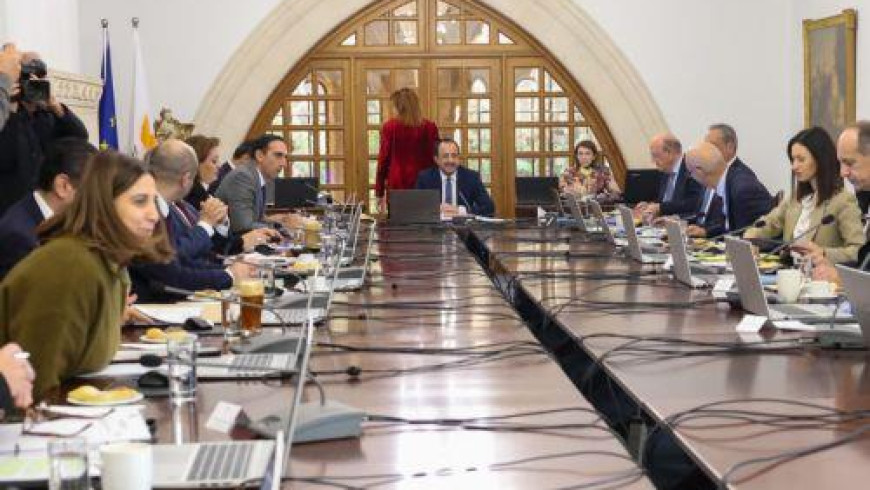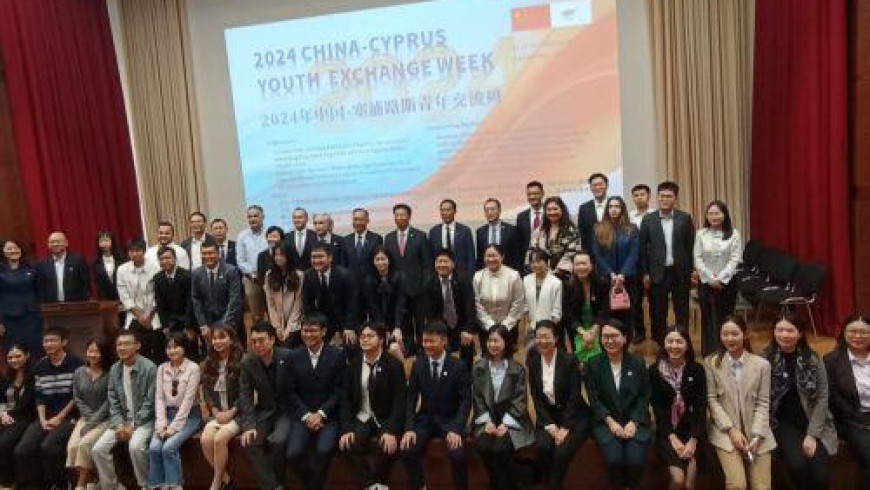
The complex but necessary implementation of international sanctions, in order to deter and disrupt criminal behaviour and to demonstrate the reputational impact on those who intend to act in a criminal manner, and the effectiveness of implemented sanctions, was discussed at the 9th International Compliance Forum, presented by the Bank of Cyprus and organised by IMH on Friday, in Nicosia.
British High Commissioner to Cyprus, Irfan Siddiq, in his speech presented how the UK approaches sanctions. He noted that for UK, sanctions are used as a foreign policy tool to change the behaviour of those who are targeted. Its application though, is in domestic UK law.
According to the High Commissioner, the UK implements sanctions in order to deter, that is to try to change someone’s behaviour. Secondly, they apply sanctions in order to disrupt, so that to make it harder for those that intend to go on with that behaviour to access resources. Thirdly, the sanctions have a demonstrative effect, so that even if the assets of someone are outside of the scope of impact, “by opposing sanctions we still aim to have reputational impact, to stigmatize the actor”.
The forms of sanctions can be financial, such as asset freezing, trade, such as arms embargoes, or personal, such as travel and immigration bans, he noted. “We are very clear that sanctions can’t work on their own, they are part of a broader foreign policy framework”, he said.
Demonstrating how sanctions can work, Siddiq gave the example of sanctions imposed to Russia. After Russia’s invasion in Ukraine, “we worked together with EU and G7 to collectively impose sanctions on Russia’s illegal war. These sanctions that we have applied, along with our partners, are the most severe package of sanctions ever imposed on a major economy and they are working,” he noted.
As he said, UK alone has sanctioned over 1,600 individuals and entities under the Russian sanctions’ regime, since the invasion. These include 29 banks, which account for over 90% of the Russian banking sector and 129 oligarchs, with a combined net worth of 145 billion pounds.
Over 20 billion pounds of UK-Russia bilateral trade is now under full or partial sanctions, he noted, adding that there has been a 99.7% drop in Russian imports in UK and 75.5% fall in UK exports to Russia.
“Under this regime we have frozen over 80 billion pound-worth of Russian assets. These assets can no longer be used to fund Putin’s war machine”, he said, adding that the UK is committed to maintain the sanctions over time, to have maximum impact.
Regarding Cyprus, the High Commissioner said that the focus is on how actors can sometimes work to facilitate sanctions’ evasion. “We are focusing very hard to tackle sanctions evasions, closing loopholes that might exist”, he said, noting that the UK has committed 50 million pounds for a new economic deterrence initiative to tackle sanctions evasion.
Dr. Marcus Pleyer, Deputy Director General in Germany’s Federal Ministry of Finance, who gave his speech through a prerecorded video, underlined the importance to not only follow the letter of the law, but to have compliance values embedded in a company’s dna.
Regarding sanctions, he noted that they are driven by certain values, like stopping a war, or counter-terrorism and these should be understood and incorporated in order for the sanctions to be more effectively implemented.
“If your people only tick the box they will not follow sanctions with the passion needed and your company will fail,” he said.
The UK’s Treasury Director of the Office of Financial Sanctions Implementation (OFSI), Giles Thomson, addressed the forum via live streaming. He said that sanctions can cost a lot of money for those implementing them and they can have unintended consequences. However, he noted, it is important to bear in mind the purpose and impact they have in Russia and its ability to fight the war in Ukraine.
He said that OFSI is trying to engage with the companies that want to implement sanctions, to give guidance on how to do it. “We try to engage not only with the financial sector, but also accounting, legal, crypto and other sectors that play important role in implementing the sanctions,” he said.
In a welcome speech, Marios Skandalis, Chief Compliance Officer of the Bank of Cyprus and Chairman of the Cyprus Integrity Forum, noted the importance of making company culture a strategic priority, making it everyone’s responsibility, not just a top-down leadership approach. “Everyone is responsible for cultivating the desired culture. This will lead to improved business performance results as well”, he said, noting that a company’s culture needs to be adaptable and to keep up with changes.
Skandalis was also the moderator of a regulators panel discussion, where a representative of OFAC, OFSI, and CBC participated.
Jacqueline Brewer, Section Chief of OFAC Enforcement Division, of the US Treasury Department, said that sanctions used to be simpler and thus easier to implement, but lately sanctions are becoming more targeted and thus more complicated, but more effective as well, since they are more focused on specific sectors.
Giles Thomson, of OFSI, UK, said that the latest Russian sanctions, after the war in Ukraine are unprecedented in size and complexity and it has been difficult for entities to keep up with them, especially in the early days.
Constantinos Trikoupis, Head of AML/CFT and Finance Conduct Department, of the Central Bank of Cyprus, said that comparing 2014 sanctions against Russia, to 2020 sanctions, we can see the volume and broadening of the type of sanctions imposed. He noted that Cypriot entities do not only comply with EU’s sanctions, but also comply with OFAC and OFSI sanctions. He stressed, however, the need for these, to be as harmonised as possible, in order to be more effective and easier to implement.
He said that CBC monitors regulated entities to make sure they have the resources necessary to be able to implement sanctions.
Asked regarding the cost to Cyprus’ economy, caused by the sanctions, he noted that, although there is no official study, there doesn’t seem to be a material impact on Cyprus’ economy, caused by the sanctions.














 3287.99
3287.99 1275.09
1275.09
